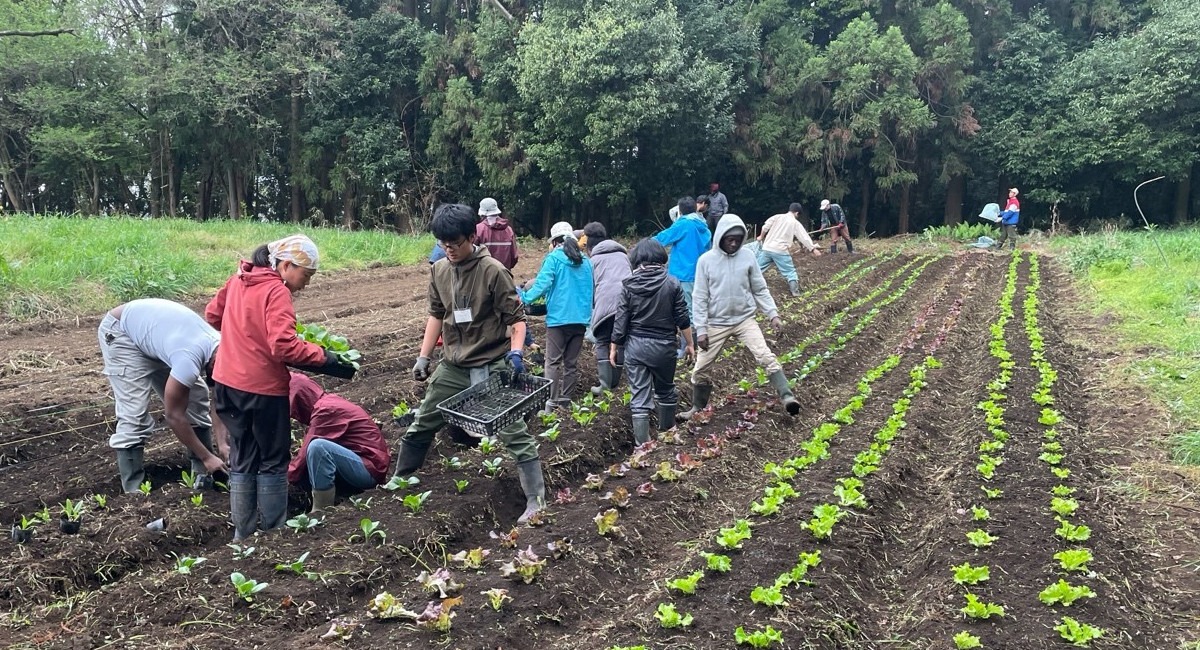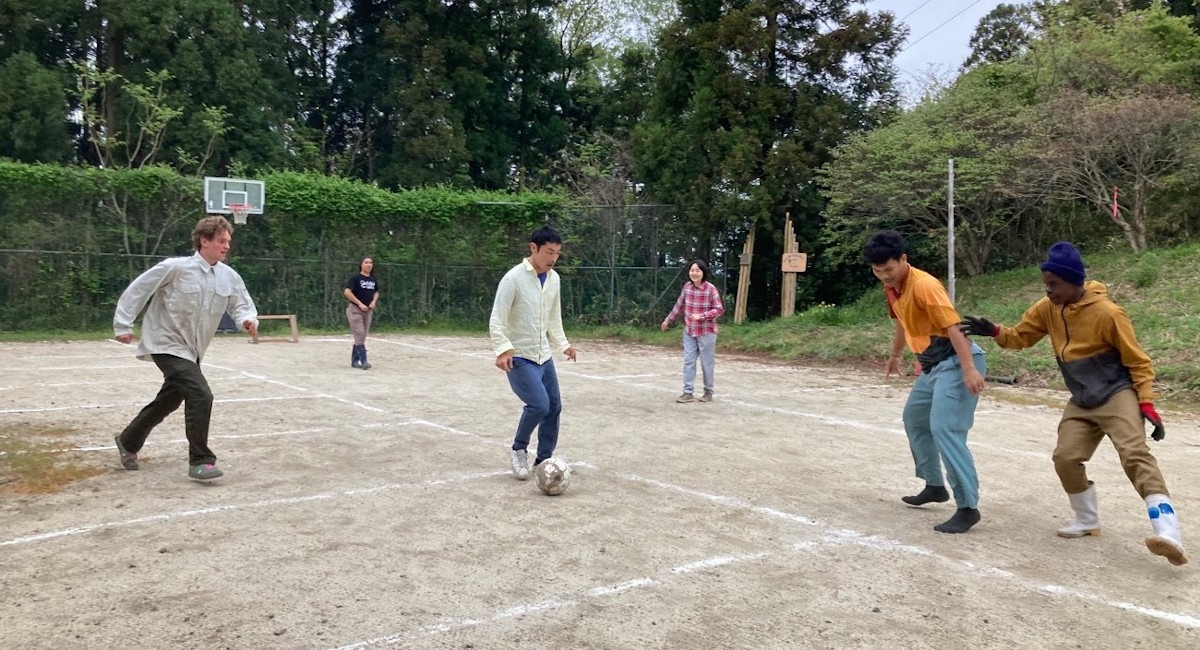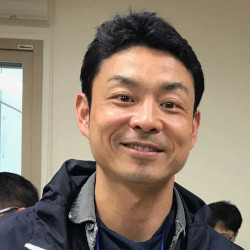 Since reading Laudato sí, I have been contemplating how I can nurture a spirituality of ecology within myself. Covid gave me the idea of turning the rocky, abandoned space of the Social Apostolate Center I oversee into a field of harvest. Thus I began the process of digging, removing rocks and stones, and replenishing the soil. After some years, the once barren spot was transformed into a fertile lot for growing crops. This experience was entirely new to me, having been born and raised in the city. I gradually came to understand the meaning of being in touch with the soil of the earth. Ever since then, there has been a place I’ve wanted to visit—the Asia Rural Institute (ARI).
Since reading Laudato sí, I have been contemplating how I can nurture a spirituality of ecology within myself. Covid gave me the idea of turning the rocky, abandoned space of the Social Apostolate Center I oversee into a field of harvest. Thus I began the process of digging, removing rocks and stones, and replenishing the soil. After some years, the once barren spot was transformed into a fertile lot for growing crops. This experience was entirely new to me, having been born and raised in the city. I gradually came to understand the meaning of being in touch with the soil of the earth. Ever since then, there has been a place I’ve wanted to visit—the Asia Rural Institute (ARI).
Founded 50 years ago, ARI is a Christian school where students live with their peers from various countries to learn agriculture and develop leadership skills. Many people from around the world, especially from Asian and African countries, have come to study at ARI, later returning to their home countries to serve as rural community leaders. I became familiar with ARI through Mrs Chieko Hirao who is affiliated with the Christian Life Community in western Japan, which I accompany. Chieko married Mr Osamu Arakawa, the vice principal of ARI, and moved there a few years ago. When I asked if I could visit her during a business trip to Tokyo, she graciously accepted, even though it was not the time of year to accept guests. Thus, I was blessed with the opportunity to stay at ARI in April, albeit for a short period of three days.
Several staff members I met thanked me for something that I, in turn, owe to the Jesuit Refugee Service (JRS). About two years ago, an ARI alumnus, who had returned to his homeland in Myanmar and became a rural leader, was forced to flee with his family due to escalating conflict. They sought refuge in a village on the Thai side of the border. ARI learned about their situation and at Chieko’s request, I connected them to JRS. Steven, a staff member responsible for outreach to ARI alumni, shared that, after several unsuccessful attempts with other organisations, JRS helped the family in a very good way. I told him I was happy that our network could collaborate effectively and praised JRS for doing a great job. He encouraged me, saying, “A lot of times what we do doesn’t show results, but it bears fruits without our knowing.”
The three days I spent at ARI were truly blessed. I felt God’s providence in the presence of Chieko, a fellow Catholic residing at ARI, and in the refugees from Myanmar, which strengthened my connection with the institute. As a volunteer, I was able to participate in the daily tasks, such as working in the fields, preparing meals, and playing soccer with Asian, African, and German youth. I got to know each of the participants and volunteers from all over the world, and, in a way, immerse myself in the wonderful programmes of the institute.
ARI is a nurturing ground for future servant leaders, where all live as one community. By learning about organic and natural agriculture, which values nature and human life, and by living and working together towards a common purpose, the students are entrusted with leadership responsibilities, various roles, and challenges that foster the growth of servant leadership.
 The day begins early in the morning, after exercise, with an hour of farm work. This is the time for morning prayer. After breakfast follows the morning gathering, during which the staff and participants take turns sharing. This lasts for about 20 minutes. I was only able to attend three morning gatherings, but they were all excellent talks filled with many things to learn.
The day begins early in the morning, after exercise, with an hour of farm work. This is the time for morning prayer. After breakfast follows the morning gathering, during which the staff and participants take turns sharing. This lasts for about 20 minutes. I was only able to attend three morning gatherings, but they were all excellent talks filled with many things to learn.
One time, while she was showing me around the compound, which includes vast fields and forests, Chieko told me a story I will never forget about her inner journey at ARI. Like me, Chieko had grown up in the city and had little experience working in the fields before coming to the institute. She used to liken her self-image to the wind. But one day, when she was asked during a prayer session, “What image do you have of yourself?” the answer suddenly and naturally came to her, “I am the soil.” She said that as she touched the earth every day, she came to understand its organic essence and its vital connections to life. She discovered how the earth accepts the weak and decaying, while sustaining other forms of life. Her very spirituality was transformed during her time at ARI.
On the last day of my visit, I had the privilege of having a conversation with the principal, Mrs Tomoko Arakawa. She shared how many wonderful students have come to ARI, including Catholic priests and sisters. She also shared her hope that the Jesuit network would send participants to ARI to deepen our learning of servant leadership.
I think it would be a wonderful opportunity for the Jesuit Conference of Asia Pacific’s (JCAP) ecology network to connect and walk with ARI. It is a place filled with treasures that can teach our Jesuit network how to nurture a spirituality that engages with the earth and soil. Since bullet trains were developed, this place, surrounded by the mountain range and nature of Nasu, has become so conveniently accessible, within a two-hour journey from Tokyo.
Whether as participants in the nine-month programme or as short-term volunteers, I hope that more people will experience ARI and receive blessings from it. Returning to my work place in western Japan, my heart is still burning with passion for how I can make the most of the blessings I received at ARI. Currently, I am planning with laypersons in my diocese to organise a nature retreat aimed at nurturing ecological spirituality, while also encouraging people to join the JCAP flagship project, “Caring for Communities and Creation”.
 Fr Jun Nakai SJ is the Director of the Jesuit Labor Education Center in Shimonoseki and the Coordinator of the Migrants and Refugees Network of the Jesuit Conference of Asia Pacific. To learn more about the Asia Rural Institute, including its programmes and volunteer opportunities, click here.
Fr Jun Nakai SJ is the Director of the Jesuit Labor Education Center in Shimonoseki and the Coordinator of the Migrants and Refugees Network of the Jesuit Conference of Asia Pacific. To learn more about the Asia Rural Institute, including its programmes and volunteer opportunities, click here.

